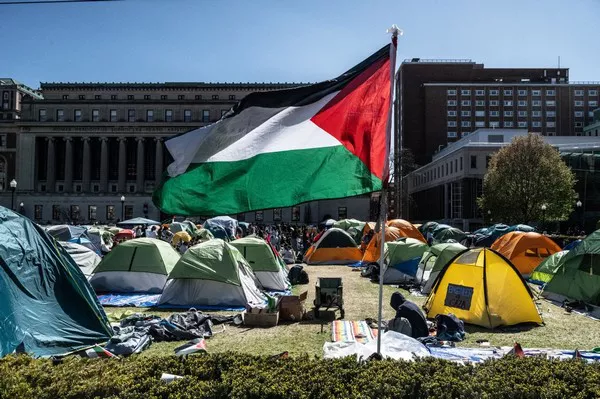The University of Central Florida’s Board of Trustees convened on Tuesday, June 25, to enact a new policy prohibiting camping on campus grounds, a decision met with vocal opposition from students and members of the public.
During the meeting, attendees expressed concerns about the implications of the ban, with no voices in favor of the new policy. Muah Dahn, a senior majoring in political science and actively involved in student organizations such as the Florida Student Power Network, lamented the restrictions, viewing them as a barrier to political expression on campus.
“We have a very large pro-Palestinian demographic, but regardless of what side you stand on, it’s an attack on your political free speech,” Dahn remarked.
Terri Falbo, a public attendee who supported student dissent against the ban, criticized the decision, drawing parallels to her own activism against apartheid in South Africa decades ago.
“I have a feeling that it’s totally being done for political reasons to suppress a political viewpoint from being out there,” Falbo asserted.
The move follows a series of pro-Palestinian protests at UCF and other Florida universities earlier in the year, where numerous students were arrested at campuses including the University of Florida, University of South Florida, and Florida State University.
Under the new regulations, camping on UCF property is prohibited unless it is part of a university-sanctioned event with prior written approval from administration. Tailgating activities before football games remain unaffected by the ban.
Additionally, the Board approved revised guidelines limiting on-campus events to specific hours: from 8 am to 8 pm Sunday through Thursday, and from 8 am to 10 pm on Fridays and Saturdays. Events exceeding five consecutive days or scheduled outside these hours must receive explicit approval from the University at least fifteen days in advance to arrange custodial and security services.
Governor Ron DeSantis had previously urged universities not to cancel graduation ceremonies due to protests, advocating for disciplinary actions against disruptive behavior during such events.
The protests, sparked by the Israel-Hamas conflict and the humanitarian crisis in Gaza, gained momentum nationwide last April, including a prominent demonstration at Columbia University where students demanded divestment from Israel.

